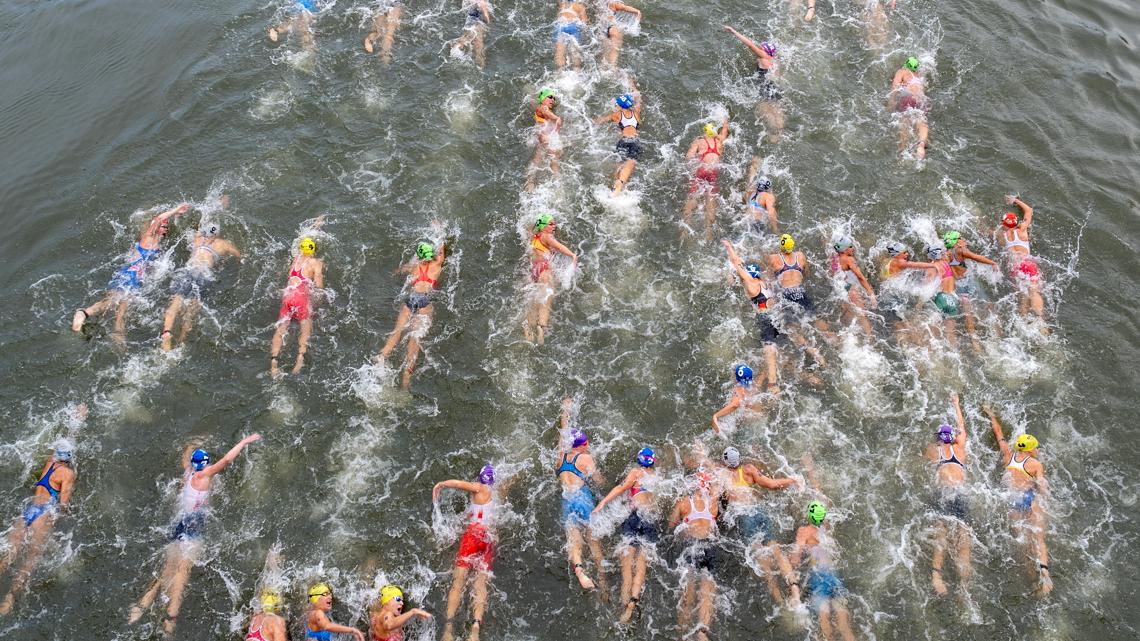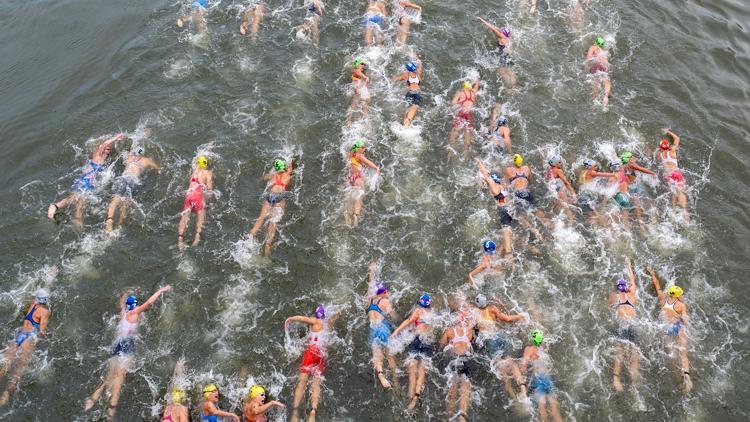PARIS, France — On Friday at the 2024 Paris Olympics, swimmers from across the world jumped into the Seine River for the open-water marathon. The Seine has come under close scrutiny—and also the actual microscope—for daily checks of its water quality.
The biggest concerns? The water quality and possible E. coli contamination.
It’s not just a concern; it’s a reality some days during the games. Trainings have been delayed and canceled because World Aquatics has deemed the river unsafe for humans to swim in. Some athletes even say they got sick after going in.
Our Verify team has fast facts looking at the safety of the Seine.
THE SOURCES
- Jason Ulseth – executive director for Chattahoochee Riverkeeper
- The City of Paris
- The International Olympic Committee
QUESTION 1
What causes the pollutants that make rivers unsafe for recreational use?
WHAT WE FOUND
Jason Ulseth has been studying the water quality of the Chattahoochee River for the last 18 years. He said big rain showers can take a river from a clear, greenish color to something that looks more like chocolate milk.
Once water is contaminated with pollution, the sun, temperature and flow all play roles in the environment, which can make bacteria and pollutants either grow rapidly or die off quickly.
“So think about all of the things on the surface around the river, parking lots, roadways, dog yards, all of these things - septic tanks will sit up there, and they won't have an impact on your local water body until you get that heavy rain,” Ulseth said.
QUESTION 2
But what are the consequences if you are swimming in contaminated water?
WHAT WE FOUND
“What we're talking about there is mostly rashes, eye infection, ear infection, gastrointestinal discomfort, vomiting, diarrhea, that sort of thing," Ulseth said. "But in some cases, especially in young people, elderly people and immunocompromised people, it can result in very significant illnesses and even death.”
Ulseth noted that unless you’re an Olympian paying close attention to your schedule and your symptoms, most people don’t even realize the blame for their illness is on the river instead of something like food poisoning.
It can take about 12-24 hours for symptoms for something like E. coli to show up in the body.
QUESTION 3
How did the city of Paris and the French government prepare to mitigate this for the 2024 Paris Games?
WHAT WE FOUND
Prior to the games, swimming in the Seine River has been banned since the 1920s. Then, about 10 years ago, leaders pumped in about 1.4 billion Euros – or $1.5 billion - into increasing the water quality to consistently safe levels.
Part of that money went into creating basins meant to capture excess rainwater and keep water from flowing into the river. One basin can hold the equivalent of 20 Olympic swimming pools of water.
QUESTION 4
So, after the Olympic Games, what’s next for the Seine River?
WHAT WE FOUND
According to the City of Paris, swimming will continue! The city plans to open three public swimming sites in 2025.
One will continue to organize water sports events, and the two others will be in the 15th and 12th districts of the city. Plans include areas for changing, showering and storing gear on the docks.




